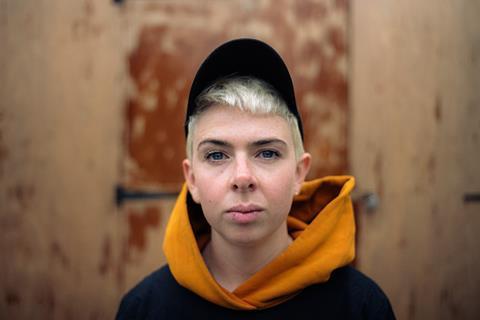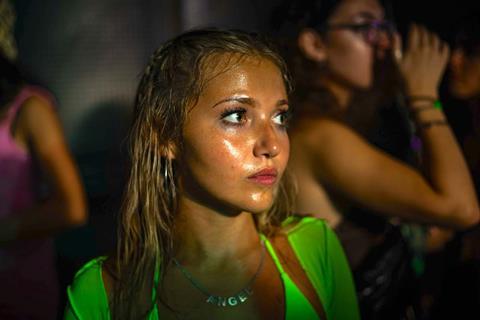UK filmmaker Molly Manning Walker hopes her holiday drama, showing in Un Certain Regard, can resonate with young audiences — and Cannes critics.

UK feature How To Have Sex has one of the most eye-catching titles at this year’s festival. The film, which debuts today (May 19) in Un Certain Regard, had that name from when debut director Molly Manning Walker first started developing the idea. “I was worried that people were going to make me change it — but no-one has, everyone loves it,” she says.
How To Have Sex follows three teenage girls on a rite-of-passage clubbing holiday in Malia, Crete, an alcohol-fuelled environment that provides “lots of wrong information” regarding the titular instruction, leading to dark experiences for one of the trio. It is inspired by holidays Walker took in her teens and early twenties, including to Ayia Napa in Cyprus once, Magaluf in Majorca twice and Ibiza four times.
This is a second Cannes outing for the drama, which won the Critics’ Week Next Step prize, for filmmakers moving from shorts to features, in 2021. “That was the first time I had confidence in the project,” says Walker. Until then, “no-one had read the script outside of our development bubble”. Winning the prize gave financiers belief in the film: “It was, ‘Okay, we should go and make this film because people think it’s good.’”
The project was developed and backed by Film4, with support from the BFI. One note the UK funding bodies had during development was whether this type of vacation is relevant to a contemporary young audience. This led Walker on scouting trips back to Magaluf and Malia, where she found little had changed. “It’s a time warp,” says the director. “They’re still playing the same songs they were when I was there, the design of it is retro. You feel like you’re stepping back in time.”
Youth input

To test the relevance of the story, Walker and UK producers Ivana MacKinnon and Emily Leo organised workshops in Manchester, Nottingham and London, with groups of girls aged 16 to 18 and boys aged 19 to 21, matching the age of the film’s characters. The sessions discussed “sex, consent, alcohol and how they perceived the world”. The filmmakers were shocked when, having provided the youngsters with scripts of an assault scene from the film, only one person from across the groups recognised it as assault.
“We knew then that the film was important and we had to make it relevant to today,” says Walker. “The workshops were heartbreaking, but also a confidence boost — ‘Let’s make this, and make it up to date.’”
Walker, a Screen International Star of Tomorrow in 2021, reunited with another Screen Star as her casting director — Isabella Odoffin, who had cast the director’s 2020 shorts Good Thanks, You? and The Forgotten C. A six-month process secured the key actors, led by Mia McKenna-Bruce as Tara and Bradford local Shaun Thomas (Clio Barnard’s The Selfish Giant) as Badger. “[As we cast them], we realised the rest of his gang had to be from Bradford, and the rest of [Tara’s] gang had to be from London,” says Walker.
Once the actors were locked in, they had two weeks’ rehearsal ahead of the autumn/winter 2022 shoot — one week in London, and one in Malia where filming took place. Instead of over-learning the script, Walker gave her cast handheld cameras, asking them to interview each other, give the best chat-up lines and make up dances, all in character. “As soon as we found the shape of a scene, we would leave it,” says the director. “The actors are so vibrant and sparky — I didn’t want to kill that spark.”
Having tracked the script prior to filming, Mubi made an offer on the feature as soon as it completed production, with a deal for North America, UK-Ireland, Italy, Latin America, Turkey and Benelux confirmed last month. The distributor’s willingness for Walker to “get creatively involved in what’s happening next” persuaded her it was the right home for those key territories. “They don’t want to lock me out of posters, they care about the filmmaker’s point of view — they’re really collaborative,” says the director.
Walker has another film “in the pipeline — it’s very early doors”, and has just started writing on an unannounced TV show. Her primary focus is getting How To Have Sex to a young audience. “It’s important for me that teenagers, and particularly young guys, see it,” she says. “I hope they recognise themselves in it, and we can start a conversation that this is not how we have sex. Hopefully it hits on two levels — young kids can say, ‘Let’s change the way sex is happening,’ and older people can reflect on what’s happened in the past.”

























No comments yet